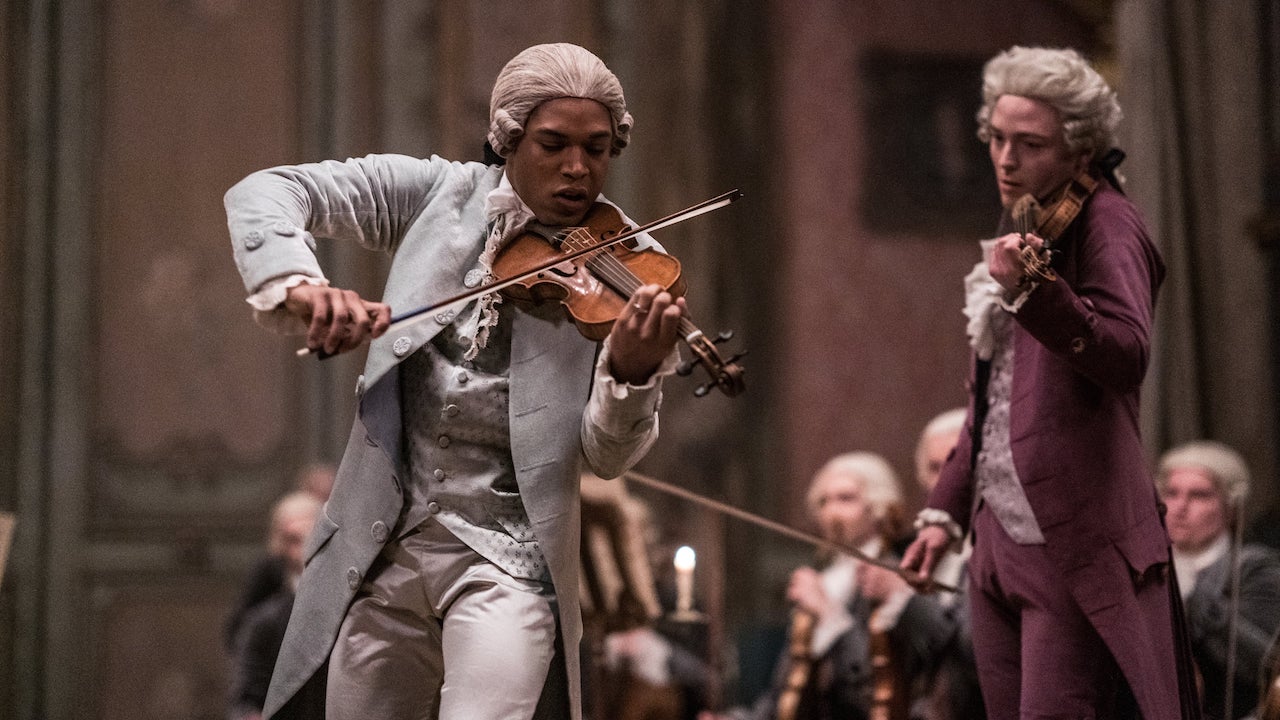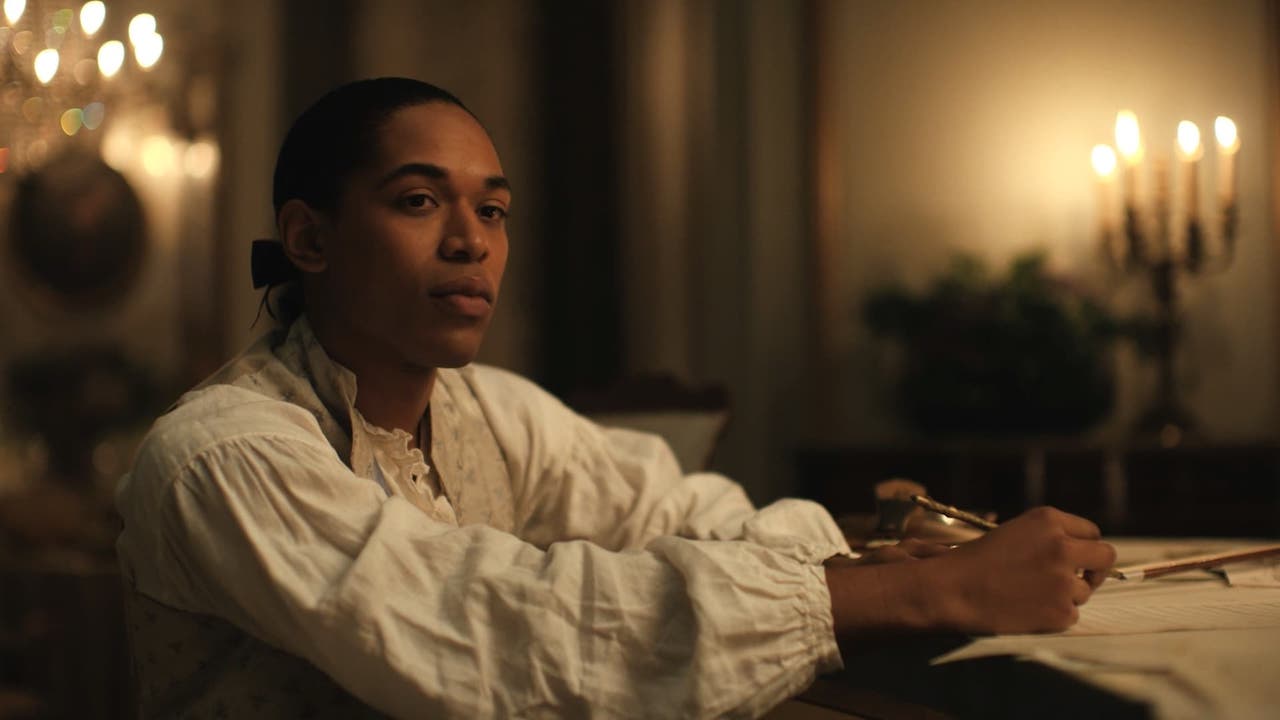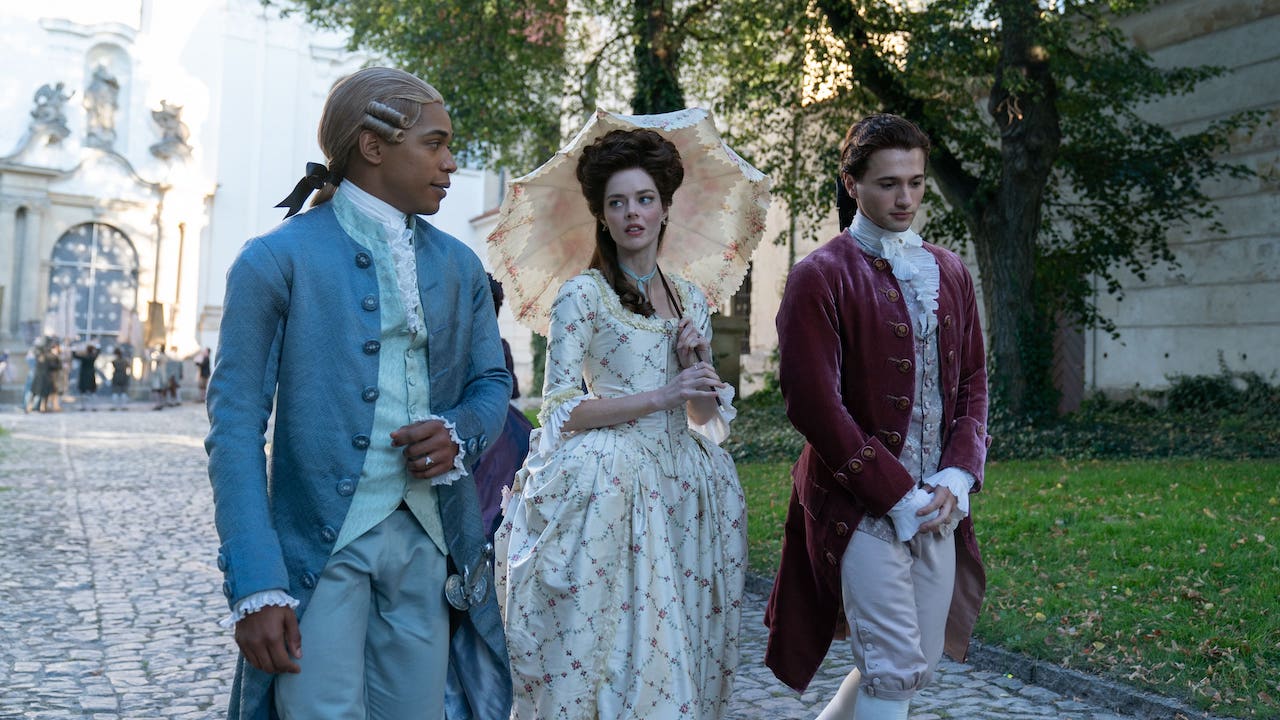Chevalier isn’t a revolutionary biopic—but it plays all the right notes

Ooh, rock me Chevalier! Eliza Janssen wishes this biopic of a brilliant Black classical composer went further with its hints of anachronism, but admits it’s still a worthy introduction.
Chevalier (2023)
A pompous young maestro in a powdered wig takes his bows before a snooty 18th century audience—you 100% know this guy’s name. But what about the unknown challenger (Kelvin Harrison Jr) who leaps onto the stage and soon trounces him in a violin cadenza duel? Through brilliantly precise sound design, we can hear the difference between the predictable flourishes Herr Mozart plays, and the Hendrix-like, fluid experimentation of this newcomer, often called ’the Black Mozart’ by his contemporaries.
Before we’re hit with a title card, with our first reveal of the victor Chevalier’s name, the film takes ol’ Wolfgang down a few pegs by having him explicitly, and anachronistically, say what we’re all thinking: “who the fuck is that?” Directed by TV journeyman Stephen Williams, the biopic is a worthy introduction to a silenced legend of classical music, but it won’t answer this opening question in any particularly original or groundbreaking manner.
The son of a Caribbean slave and a white plantation owner, the odds are stacked against the man who would become Joseph Bolonge, Chevalier de Saint-Georges right from the beginning. It’s not enough for him to simply have preternatural abilities on the fiddle: the guy’s gotta be the best at fencing and academics, too, to stand out as more than a foreign novelty in a prejudiced society. And impressing one Marie Antoinette (Lucy Boynton) at a racist swordfight demonstration is the final push needed to boost the outsider into the French court’s lap of luxury.
The script is a pitched passion project from Stefani Robinson, a writing talent who made her name as the youngest person in the Atlanta writers room and has since earned Emmy noms for her hilarious work on What We Do In The Shadows. If anyone is uniquely placed to craft a quirky period piece illuminating Black excellence of a bygone era, it’s Robinson—which makes Chevalier’s fairly rote narrative a bit of a disappointment. That sweary, swaggering cold open is not matched by any further bursts of humour or mischievous modernity. And, perhaps bound by the sad truth of Bolognes’ lack of historical recognition, the character is never allowed to rebel in a properly exciting, cinematic way.

Instead we see how racist institutions shut the genius out of opportunities in Paris’ opera scene, and, through closing credit text, how his many compositions were destroyed or overlooked, relegating him to the margins of music history. Harrison Jr. is an ideal pick to play a before-his-time rock star, showing off exuberant energy and genuine harmonic chops in musicals Cyrano and Elvis, but here he’s relegated to a mostly reactive, somber role. The actor is only allowed to come to life when performing on stage, or during one salty tirade against patron-turned-frenemy Marie Antoinette.
Samara Weaving gets done dirty, too, playing the love of the Chevalier’s life in a mopey romantic subplot that ends on a sour note. Great gowns, beautiful gowns. While the film didn’t need to go for all-out period camp in order to entertain, we’re sorely missing the playful freshness of productions like Coppola’s Marie Antoinette, or Ken Russell’s Lisztomania. Boynton’s doomed queen has Instagram-era makeup and not much satirical bite, mostly winding up as an allegory for the fragility of white allyship when push comes to shove. Her highly contemporary brows ’n’ red lip aren’t witty or anachronistic: they just look historically inaccurate.

Chevalier does convey a palpable sense of pride in its third act, with Bologne’s mother (Ronkę Adékoluęjo) arriving just in time to inspire the dejected composer to sonically and spiritually return to his African roots. Abandoning his fussy white wig, the enfant terrible embraces his outsider identity for one last, heart-swelling performance in support of the revolution. Did this actually happen? Wikipedia tells me nah, but for our edutainment purposes, the finale wraps up the film’s entire raison d’être in a nice flouncy bow. Even if it does skew a little towards TV miniseries broadness, Chevalier is rousing in all the right places, and at the very least serves as a welcome introduction to a forgotten musical legend.



















